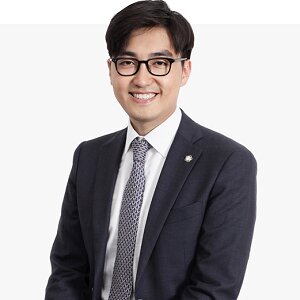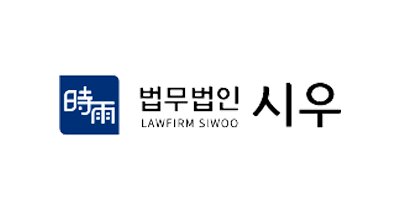Best Juvenile Law Lawyers in Yeonje-gu
Share your needs with us, get contacted by law firms.
Free. Takes 2 min.
List of the best lawyers in Yeonje-gu, South Korea
About Juvenile Law in Yeonje-gu, South Korea
Juvenile Law in Yeonje-gu, as in the rest of South Korea, refers to the legal principles and processes for minors who are involved in the justice system. The purpose of Juvenile Law is to rehabilitate rather than simply punish young people under the age of 19 who commit acts deemed criminal or delinquent. The legal system treats juveniles differently from adults, focusing on protection, education, and reintegration. Yeonje-gu, as a district in Busan, follows the national framework set out in the Juvenile Act, but may have its own local procedures or resources related to juvenile justice.
Why You May Need a Lawyer
There are many situations where a lawyer experienced in Juvenile Law can provide critical help for minors and their families in Yeonje-gu. Common scenarios include:
- A child is accused of a criminal offense or delinquent act.
- A youth is subject to investigation or questioning by police or prosecutors.
- A minor is at risk of detention in a juvenile facility or needs representation in Family Court.
- Parents or guardians want to understand their rights and responsibilities during the juvenile justice process.
- Issues of child protection, abuse, or neglect come to the attention of school authorities or social services.
Having a knowledgeable lawyer is essential for navigating complex legal processes, advocating for rehabilitation over punishment, and ensuring the best outcome for the minor.
Local Laws Overview
Juvenile Law in Yeonje-gu is primarily governed by the national Juvenile Act, the Child Welfare Act, and other related statutes, but local practices and resources may differ. Key aspects include:
- The age of criminal responsibility in South Korea is 14. Children exempt from criminal punishment can still be subject to protective measures.
- Juvenile cases are typically handled by the Family Court, which has discretion to impose protective measures such as counseling, education, or placement in a juvenile facility, rather than imprisonment.
- Police may refer youths to the prosecutor or recommend diversion programs rather than formal charges.
- There is a strong emphasis on safeguarding the minor's personal information and privacy throughout legal proceedings.
- Parents or legal guardians are generally involved when a juvenile is being investigated or tried, and have the right to legal representation for their child.
- Local government bodies and school counselors often collaborate to provide social and educational support for at-risk youth.
Understanding how these laws and local procedures apply is crucial for effective legal navigation, especially in Yeonje-gu where community resources may offer alternative solutions aside from punitive action.
Frequently Asked Questions
What is the age range for juveniles under South Korean law?
Generally, "juvenile" refers to anyone under 19 years old. For criminal responsibility, the minimum age is 14, but children aged 10 to 13 can still face protective measures if they commit offenses.
Can juveniles be sent to prison in Yeonje-gu?
Most juvenile offenders are not sent to prison. Instead, they undergo protective measures, such as counseling or placement in juvenile facilities. Severe cases involving older minors may lead to prosecution as adults.
What rights do juveniles have when questioned by police?
Juveniles have the right to remain silent, to be assisted by a lawyer, and for a parent or guardian to be present during questioning.
Are parents responsible for their children's crimes?
Parents are not criminally liable for their child's actions but are expected to participate in the process and cooperate with authorities, particularly with respect to rehabilitation.
How does the Family Court process work for juveniles?
The Family Court evaluates the minor's situation and determines appropriate measures, which may include guidance, community service, probation, or placement in a protective facility.
What happens if a juvenile repeats offenses?
Repeated offenses can lead to stricter protective measures. Family Court considers the background and circumstances for each decision, aiming for the child's improvement.
Can a juvenile get a permanent criminal record?
Most juvenile records are sealed and not disclosed to the public. This is to help protect the minor’s future and support their reintegration into society.
What role do schools play in juvenile cases?
Schools often cooperate with legal and social services to identify at-risk youth and provide counseling or intervention before or after legal action is taken.
How can a lawyer help my child in a juvenile case?
A lawyer ensures the minor's rights are protected, provides advice at each stage, negotiates with authorities, and may secure less restrictive protective measures focused on rehabilitation.
Are there specific resources for non-Korean citizens facing juvenile issues in Yeonje-gu?
Non-Korean families can seek help from local government offices, legal aid centers, and multicultural support organizations which offer interpretation and guidance about the Korean juvenile legal system.
Additional Resources
For people seeking advice or support regarding Juvenile Law in Yeonje-gu, consider contacting:
- Yeonje-gu District Office Social Welfare or Youth Support Departments
- Busan Family Court for information on local procedures
- Busan Metropolitan Police Juvenile Division
- Korean Legal Aid Corporation (regional office in Busan)
- Busan Youth Counseling & Welfare Center
- Local law firms with juvenile or family law specialists
- Multicultural Family Support Centers for non-Korean residents
These organizations provide guidance on the legal process, social support, interpretation services, and direct legal assistance.
Next Steps
If you or your child are involved in a juvenile law matter in Yeonje-gu, it is advised to:
- Contact a qualified lawyer who has experience in juvenile or family law issues.
- Reach out to your local government office or youth support center for resources and initial guidance.
- Prepare any relevant documents or evidence, including school records, incident reports, or prior interventions.
- Participate fully in discussions with authorities, ensuring your child’s legal rights are upheld at every stage.
- Consider mediation, counseling, or voluntary participation in community-based programs if these are offered as alternatives.
Early legal guidance is the best way to protect your child’s interests and support a positive outcome. Every case is unique, so obtaining professional advice as soon as possible is strongly recommended.
Lawzana helps you find the best lawyers and law firms in Yeonje-gu through a curated and pre-screened list of qualified legal professionals. Our platform offers rankings and detailed profiles of attorneys and law firms, allowing you to compare based on practice areas, including Juvenile Law, experience, and client feedback.
Each profile includes a description of the firm's areas of practice, client reviews, team members and partners, year of establishment, spoken languages, office locations, contact information, social media presence, and any published articles or resources. Most firms on our platform speak English and are experienced in both local and international legal matters.
Get a quote from top-rated law firms in Yeonje-gu, South Korea — quickly, securely, and without unnecessary hassle.
Disclaimer:
The information provided on this page is for general informational purposes only and does not constitute legal advice. While we strive to ensure the accuracy and relevance of the content, legal information may change over time, and interpretations of the law can vary. You should always consult with a qualified legal professional for advice specific to your situation.
We disclaim all liability for actions taken or not taken based on the content of this page. If you believe any information is incorrect or outdated, please contact us, and we will review and update it where appropriate.










